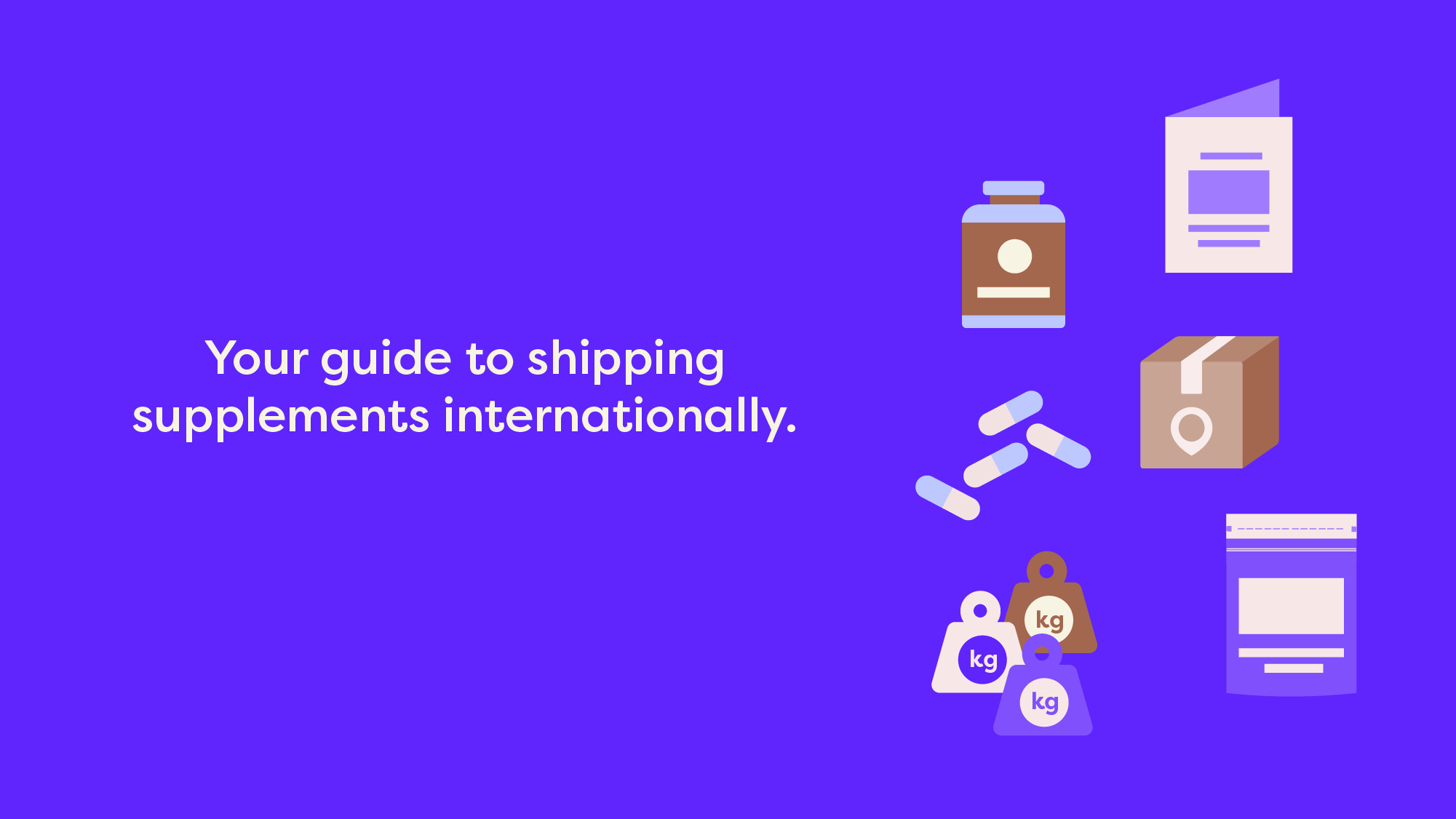Let’s get straight to the point, shipping supplements internationally can be challenging. Whether you’re selling vitamins, protein powders, dietry, energy bars, drinks or something else entirely, the regulations and rules can differ from country to country, leaving e-commerce sellers scratching their heads. If you’re thinking about expanding your supplements sales reach further afield, read on to find out what to expect.
#When we talk about supplements, what exactly do we mean?
A food supplement is a concentrated source of vitamins, minerals, or other substances intended to supplement the normal diet, according to the Food Standards Agency. Some examples of these are:
• Vitamins • Minerals • Amino acids • Essential fatty acids • Fibre • Various plants and herbal extracts
Supplements come in many forms including tablets, capsules, gummies, powders, drinks and energy bars. Protein powder is a dietary supplement that can be derived from animal or plant sources. If you are used to selling protein powders online, you’ll already know that there is a thriving and growing market for selling internationally.
#Why so complicated?
There are many points to consider when shipping supplements internationally, including quantity limits, document accuracy and ensuring compliance with prohibited or restricted ingredients. Each one can easily become a stumbling block if you don’t know the rules pertaining to the country you are shipping to. Therefore, it is crucial to stay well-informed about the specific rules and requirements of your target market.
As the health and wellness industry continues to gain global momentum, understanding the intricacies of international shipping and regulatory compliance can lead to exciting new revenue opportunities for your business.
Here some key points for consideration:
Customs and regulations
With the right approach and consideration of international customs laws and regulations, businesses can successfully sell supplements all over the world. For international shipping to work properly, sellers need to be aware of their respective countries’ regulations and trade laws, understand restrictions regarding certain goods or products, and pay attention to any potential tariffs or taxes imposed when goods cross international borders.
Prohibitions and restrictions
Being well-informed about restrictions and prohibitions in each country you ship to is essential. Different countries can have varying regulations that ban certain ingredients or impose limits on their quantities. For example, melatonin is commonly used as a sleep aid in the USA and is available over the counter. In the UK, melatonin is classified as a prescription medication and cannot be sold as an over-the-counter supplement.
Precise documentation
When shipping internationally, accurate customs declarations are critical. You’ll need to ensure you provide clear and transparent disclosure of your parcel contents and value. Detailed descriptions, correct product classification and precise valuations are not only key to meeting legal obligations, but also help you avoid unnecessary delays, additional fees or even having your shipment confiscated.
What is the best way to ship supplements internationally?
Shipping supplements overseas doesn’t have to be a challenge for e-commerce businesses. The international supplement market is vast, so taking advantage of international shipping can significantly broaden sales opportunities. E-tailers can tap into new markets and customers who would otherwise not have access to your product.
SAMOS understands the intricacies of selling supplements, vitamins and protein powders internationally and can provide you with solutions to make your global deliveries simple. Our transparent deliveries, cost-effective returns service and bespoke support from industry experts, will help you ensure a seamless shipping experience for all your customers.
If you are struggling with shipping supplements internationally, we can help. Get in touch with SAMOS for specialist support today.




